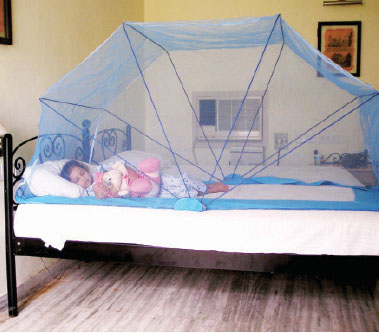Former President Goodluck Jonathan’s partnership with Moskeeto Amor to help 400,000 malaria-infested African children portrays the former president as indeed a global statesman, writes Correspondent SAM NWOKORO
Due to factors that tended to smudge his administration when he held sway as Nigeria’s president, Goodluck Jonathan may be a villain in the eyes of his detractors. But recent events paint him in the light of not just a Nigerian statesman and pan-Africanist, but also as a global statesman whose spirit is always touched by global concerns.
For his remarkable works as a political economic transformer, the global community of diplomats early this year honoured him as “Africa’s Most Outstanding Peace Ambassador”.
Jonathan’s tenure as Nigeria’s President between 2010 and 2015 has been the most eventful in the annals of Nigeria’s political leadership. For this reason, since he left office in 2015, sundry garlands on leadership have been coming his way.
The Circuit of Diplomats, a global body of renowned political leaders and shapers of world politics, early in the year, gave him an award for his outstanding leadership virtues and as UN Peace Ambassador for handing over power to an opposition party – when he had the opportunity, like some African leaders, to sit tight – in an atmosphere of peace.
With that act, Jonathan followed the footpath of former popular presidents who saw leadership as calling beyond the demands of their immediate constituency.
Good works
World records have it that since he left office, Jonathan has been steadfast in preaching peace, rule of law and good governance to African leaders. For this reason, the United Nations (UN) awarded him the medal as a special envoy. The UN stamped this by recruiting him as Special Rapporteur in the political crisis in Trinidad and Tobago. The Commonwealth and the association of former British colonies early later in 2015 appointed him as Special Mediator in the political crisis in Tanzania.
Jonathan’s administration witnessed landmark policies tailored towards the UN mandate on Millennium Development Goals (MDGs) and the Sustainable Development Goals (SDGs).
Notwithstanding the torments of insurgency in most parts of the North, the Jonathan administration was able to attract foreign development partners into Nigeria’s economy and was able to notch up foreign investments. He also made efforts to empower various sectors of the economy as well as hold the first national conference on Nigeria’s enduring socio-economic and political architecture. The fact that he handed over power in an atmosphere of peace without the anticipated cataclysm in Nigeria earned him the respect and adoration of the global community.
Foundation in global limelight
In line with the practice of former presidents, Jonathan established a foundation whose major objective is the advancement of peace and progress in Nigeria and the world at large. Another mission of the Goodluck Jonathan Foundation (GJF) established in 2014 is its alliance with the globally recognised Walk Free Foundation, a non-governmental organisation (NGO) based in United States of America which aims at promoting African unity.
Speaking on the Walk Free Foundation, he said: “I, former President Goodluck Jonathan, met with Mr. Andrew Forrest, founder of Walkfree International Foundation, the world’s prominent anti-modern slavery body index which he wholeheartedly endorsed. The GJF will partner with Walkfree International Foundation to spread liberty around the world, especially in Africa.”
On April 24 this year, GEJ gave a keynote speech at the California State University’s Center for African Peace and Conflict Resolution’s 25th annual African/Diaspora conference in Sacramento. He was represented by Reno Omokiri, who received an award on his behalf from the centre in recognition of his role in promoting democracy and peace in Africa. At the event, Provost of the School, Professor Mike Lee, praised the outstanding character displayed by the ex-president and called on other leaders to emulate his conscience-driven leadership.
Director of the centre, Professor Ernest Uwazie, also commended the former president and declared that his conduct during the 2015 general elections in Nigeria made him one of the few statesmen with the moral authority to speak on democratic issues in Africa.
Heart for the African child
One of the legacies GEJ would probably live for posterity, not only in Nigeria and Africa but the entire world, is his latest initiative to tackle the malaria pandemic decimating Africans. Through the GJF, he has entered a partnership with foremost anti-malaria tools and therapy company, Moskeeto Amor, to commence the production of insecticide-treated mosquito nets.
The partnership will see the global health NGO producing hundreds of thousands of treated mosquito nets that will be distributed at very little or no cost to countries in Africa where malaria is prevalent. The GJF initiative follows from what is perceived as the former president’s soft heart and philanthropy.
Thus Jonathan joins, by this concern over malaria menace in Africa, the league of global statesmen in the mould of Jimmy Carter, Bill Clinton, Ford, Rockefeller, Mac Arthur etc. These foundations have been tackling human problems on global scale, relying on proceeds from personal contracts, friendship circles and global reach of their founders. The Jimmy Carter Foundation had wrought miracles in the mitigation of guineaworm attack prevalence in most parts of Northern Nigeria and Africa, a feat for which the former American president was given a Nobel Peace Prize in 1998 for charity and humanitarian works.
Significance of GJF
According to the Carter Center for Malaria Control Program, approximately 80 per cent of all cases and 90 per cent of all malaria deaths occur in Africa – where one in 10 children dies before five years from malaria. More deaths from malaria (about 200,000) per year occur in Nigeria than in any other country. The centre reports also that: “Malaria, a potentially fatal mosquito-borne parasitic disease widespread in tropical regions, kills an estimated 655,000 people each year, mostly children, with about 250 million cases of the disease reported worldwide.” WHO, on the occasion of 2016 World Malaria Day, reported that the disease snuffed out 400,000 lives worldwide in 2015. It added that the centre supported the distribution of 7.6 million insecticide-treated nets since 2004.











